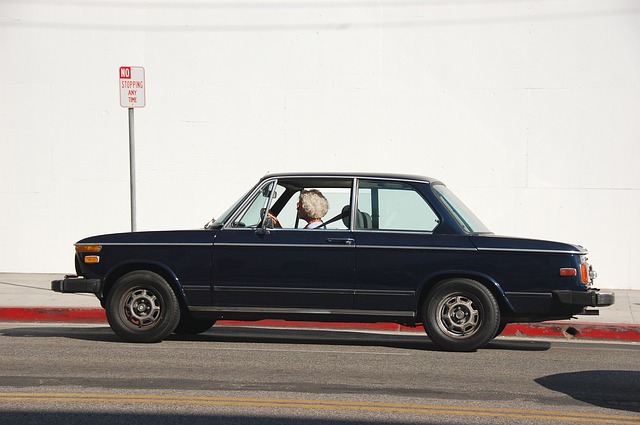New Evidence Shows Older People Make Safer Drivers
Swansea University have published new research which shows we may now have to adjust our misconceptions about older people being more dangerous behind the wheel. This week, the BBC reported on new data on vehicle accidents which shows that drivers over the age of 70 have 3-4 times fewer accidents that young men aged between 17-21. We take a look at the results in greater detail, as well as few ways in which driving can have health benefits for older people and offer more reassurance…

New Research
These new findings were released at the recent British Science Festival held in Swansea, with scientists at the university finding that ‘dangerous driving’ is not really an issue for older people and common misconceptions about them being more of a risk behind the wheel of the car may be misplaced. Although drivers in this age bracket are more likely to be involved in a car accident than those in their 40s, when assessing all the evidence, it is now clear that they are much less-likely to be the cause of an accident than much younger drivers.
However, the research highlighted more complex statistics about the nature of these accidents. Younger men tend to be involved in more single vehicle accidents as a result of dangerous or fast driving, whereas the accidents caused by older drivers are more likely to be smaller collisions, often as a result of error whilst making tight manoeuvres.
Benefits of Driving When Older
Taking away an older person’s driving licence can result in a huge loss of independence, especially if they have mobility issues or can’t rely on reliable public transport, and can tribute to a possible increased risk of depression. Although health issues such as dementia and problems that can affect cognitive skills are a real concern for older drivers, other needs and benefits should be considered before completely disregarding the place of older drivers on the road.
Future Recommendations
A number of suggestions have been put forward as to how to improve the safety of older drivers on the road whilst still enabling them to keep their independence behind the wheel for as long as possible. One argument that is brought up on a regular basis is the introduction of re-testing for older drivers, but evidence in countries where this has taken place, including Australia and Denmark, have shown this doesn’t actually lead to any significant changes. Professor Musselwhite from Swansea University suggests that different sorts of testing should be introduce, such as more eye tests, and more research into the effects some prescription drugs have on driving.
Taking into consideration the fact that a lot of accidents involving older drivers take place on right turns and when overtaking, another suggestion has been to widen certain lanes, or introduce dedicated filter arrows on right turns, although any changes proposed need to take into account their possible impact on the behaviour of ALL drivers.
What Can Older Drivers Do Right Now?
With car insurance for older drivers becoming increasingly expensive, the choice of whether to continue driving is often taken out of the hands of older drivers for financial reasons alone. Saga Car Insurance specialise in cover for older members of the population to get them the best deal, but drivers are advised to shop around for the best quote and check out other providers, such as AXA Car Insurance.
Breakdown cover can also offer drivers that additional level of reassurance and peace of mind when out on the road, and online offers such as those available with RAC Breakdowncan offer the very best value.
It’s easy to generalise based on age, and the competence of one particular driver can be down to any number of other factors. Older drivers can be more of a risk in many respects, but it appears there are some common misconceptions about their place on modern roads. This is a complex issue, but hopefully this new research can lead to more help to keep safe drivers on the road for longer.
 By Anna Scott, 8th September 2016
By Anna Scott, 8th September 2016





